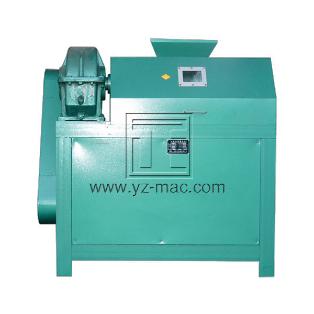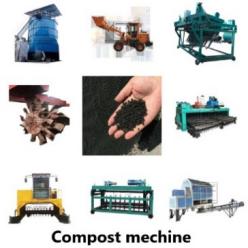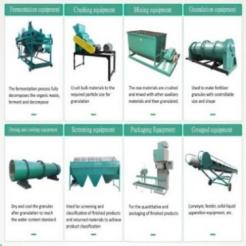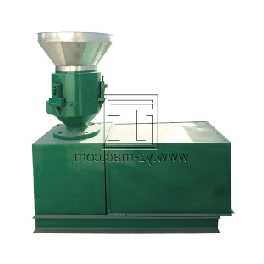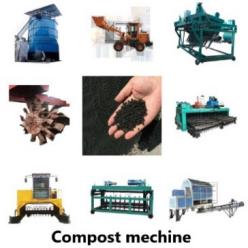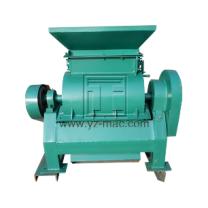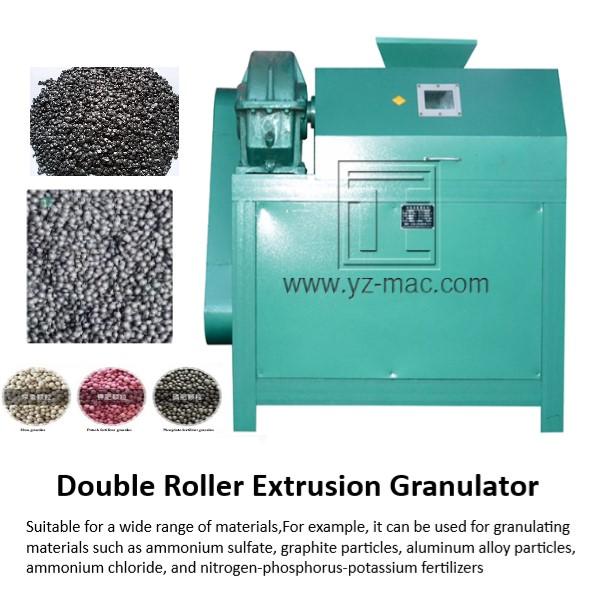Fertilizer granular machine
A fertilizer granular machine is a specialized equipment designed to transform fertilizer materials into granules for easier handling, storage, and application. This machine plays a crucial role in the fertilizer production process by converting powdered or liquid fertilizers into uniform, compact granules.
Benefits of a Fertilizer Granular Machine:
Enhanced Nutrient Release: Granulated fertilizers provide a controlled release of nutrients to plants, ensuring a steady and consistent supply of essential elements for optimal growth and development. The granules are designed to break down gradually, releasing nutrients over an extended period, reducing the risk of nutrient leaching and wastage.
Improved Fertilizer Handling: Granulated fertilizers are easier to handle, store, and transport compared to powdered or liquid fertilizers. The granules are less prone to dustiness, clumping, and caking, making them more convenient to apply using spreading equipment or by hand.
Precise Nutrient Distribution: A fertilizer granular machine enables the production of uniform granules with a consistent nutrient composition. This ensures even nutrient distribution across the field or garden, preventing over-fertilization in some areas and under-fertilization in others, leading to more balanced plant growth.
Customized Formulations: Fertilizer granular machines offer flexibility in formulating custom blends of nutrients to meet specific crop requirements. By adjusting the composition of the raw materials, it is possible to create granulated fertilizers with tailored nutrient ratios, microelement additions, or slow-release properties, optimizing plant nutrient uptake and overall productivity.
Working Principle of a Fertilizer Granular Machine:
A fertilizer granular machine typically utilizes one of several granulation techniques, such as rotary drum granulation, disc pelletizing, or extrusion. The basic principle involves the combination of powdered or liquid fertilizer materials with a binder or adhesive to form small granules. The mixture is then shaped and compacted using specialized equipment, resulting in the production of uniform granules of desired size and characteristics.
Applications of Granulated Fertilizers:
Agriculture and Crop Production: Granulated fertilizers are widely used in conventional and organic farming systems to provide essential nutrients for crop growth. The uniform granules facilitate precise application using various equipment, including spreaders, seeders, and fertilizer applicators. Granulated fertilizers can be used for a wide range of crops, including grains, vegetables, fruits, and ornamental plants.
Horticulture and Garden Cultivation: In horticulture and gardening, granulated fertilizers are favored for their ease of use and controlled nutrient release. They are suitable for container gardening, greenhouse production, and landscape maintenance. Granulated fertilizers provide a reliable source of nutrients for potted plants, flower beds, lawns, and ornamental gardens.
Specialty and Controlled-Release Fertilizers: Fertilizer granular machines can produce specialty fertilizers with specific characteristics, such as slow-release or controlled-release formulations. These granules release nutrients gradually, providing a sustained supply over an extended period, reducing the frequency of application and minimizing nutrient loss to the environment.
Blended Fertilizer Products: Fertilizer granular machines enable the production of blended fertilizers, which combine different nutrient sources and formulations into a single granule. Blended fertilizers offer convenience and versatility, providing a balanced nutrient profile in a single application.
A fertilizer granular machine is an essential tool for efficient fertilizer production, offering numerous benefits such as enhanced nutrient release, improved handling, precise nutrient distribution, and customization of fertilizer formulations. Granulated fertilizers find wide applications in agriculture, horticulture, gardening, and specialty fertilizer production.


